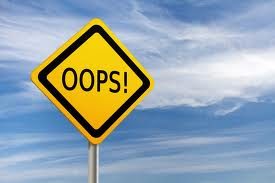 Many small businesses forget the importance of marketing to grow their business, and marketing soon becomes an afterthought. Or the thought of marketing brings about such a feeling of overwhelm for some business owners, by just how much work there seems to be in marketing a business or the number of marketing choices available.
Many small businesses forget the importance of marketing to grow their business, and marketing soon becomes an afterthought. Or the thought of marketing brings about such a feeling of overwhelm for some business owners, by just how much work there seems to be in marketing a business or the number of marketing choices available.
Strategic marketing is a critical component of building a successful business and without a strategic plan, most businesses have stunted growth, plateau or begin the downward spiral to business closure. Some businesses only do marketing when their business starts to slow (which is too late). Most slow-growth businesses will rush to do some marketing when they see their revenues slipping, resulting in feast or famine cycles in regards to generating sales leads and consistent streams of income.
To set yourself up for success, you should always be marketing.
Avoid these 8 business blunders if you want to grow a sustainable business:
1. Working “in” your business instead of “on” your business
Too many people spend way too much time in a reactive state in their business; fighting fires, playing catch up, and reacting to the latest external demand. When in reality, half of your working hours should be spent “doing” the work and the other half should be spent marketing, planning and nurturing long-term growth and sustainability. Make the time to plan and market, a priority.
2. Failing to develop and execute a strategic marketing plan
Strategic planning is a critical component of good management and governance and it contributes to an organization’s stability and growth. The plan acts as a blueprint to guide its activities and provide a basis for setting priorities, allocating resources, monitoring progress, investing marketing dollars and assessing results and impacts against business goals.
3. Forgetting to implement a system and repeatable process
Develop a business process and set up procedures and systems in your business so that you can generate predictable, consistent and replicable results without having to reinvent the wheel every time. Implementing a system will help you become more efficient with your inputs of time and efforts, while exponentially increasing the outputs of sales.
4. Not differentiating your business with a niche slice
When you don’t have a solid niche market you work way to hard and spend tons of time, energy and money getting clients by building one-on-one relationships, or waiting for those word-of-mouth recommendations to come rolling in. The benefits of differentiating your business is that you can be more focused, tailor your message, have the right words to communicate your offering and get more leverage out of your marketing investments. Stand up and be unique in order to stand out and be seen.
5. Failing to understand your customer’s state of mind
People buy from people. So, in order to understand how to sell your product or service, you need to understand your potential client’s mindset. When you truly understand your customer inside and out you will know how to genuinely talk to them in a way that makes them leap out of their seat and engage with you.
6. Not positioning your business offering as a solution to your target market’s problem
Speak in a language that resonates with your target audience from a place of knowing what they emotionally connect with, and provide a genuine solution to their problems and challenges. What are their pain points and what do you offer that will satisfy their emotional state.
7. Selling your time for money
Change your mindset from selling your time in exchange for money to one of leveraging your time for money. Linear growth only allows you to either increase your prices or expand your client base. Leveraged growth allows you to create products or services that you can sell to earn residual/recurring income (literally in your sleep!) allowing you to charge a premium for your one-on-one client face-time.
8. Not tracking and testing your marketing efforts
Give your marketing tactics/activities at least 3 months to prove themselves successful. At which point, evaluate what’s working and what isn’t, and prioritize those that give you the best return on investment. Do more of what is working, and less of what isn’t. Don’t adopt the “all or nothing” mindset that just because one particular tactic doesn’t work, it is an inherently poor tactic. It may have been poorly implemented or perhaps it was how the message was crafted or the call to action that simply needs to be tweaked for optimum results.
Share your expertise! What are some of the biggest business blunders you have made in your business and what did you learn? Please leave your comments below or join the discussion on Facebook.
